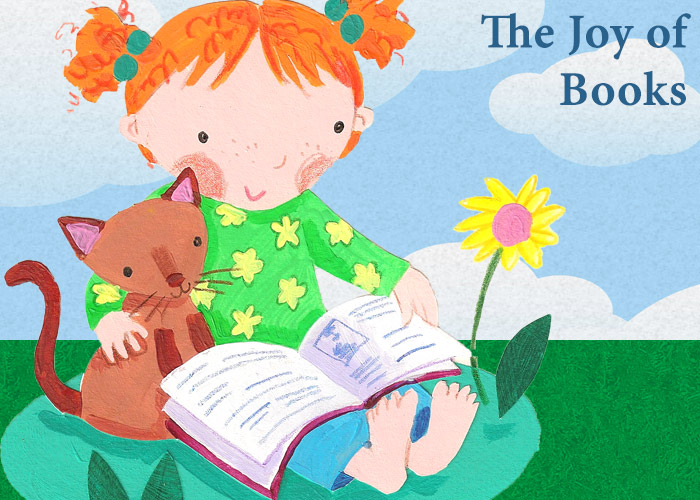
“Particularly, when a child is afraid, or facing something big in their lives, so often parents will turn to a book as a ready-made means of transmitting a sense of order, calm, and strength to face what is to come – for both child and parent. Finding assurance in the message of the book transmits from parent to child; it strengthens the emotional bond, the need for security and guidance that children look to their parents for, and supports the need in the parent to find ways to nurture, nourish, encourage and support their children.”
– Virginia Mallin, Psychotherapist
Books – or perhaps more pertinently, stories – have a way of getting deep into the mind and soothing, stirring, exciting, provoking, and processing things which are too complex, too profound, too symbolic to be understood with the cognitive mind alone. Stories, fables, fairy tales are ways of sharing experiences through language and illustrated explanations for an often complicated, exciting but daunting, sometimes downright scary world. Stories have the power to make the inexplicable more understandable, often on a deeply subconscious level, and therefore less chaotic and alarming.
Particularly, when a child is afraid, or facing something big in their lives, so often parents will turn to a book as a ready-made means of transmitting a sense of order, calm, and strength to face what is to come – for both child and parent. Finding assurance in the message of the book transmits from parent to child; it strengthens the emotional bond, the need for security and guidance that children look to their parents for, and supports the need in the parent to find ways to nurture, nourish, encourage and support their children.
Young children respond initially to sound, looking, and touching. In the womb, sounds are a major element of stimulus for the developing body and brain. Visually, the new-born baby’s eyesight is perfectly pitched to the distance during feeding from mother’s cradling arms to her face. Babies respond to faces first and foremost. Touch – being held, exploring with the mouth, then touching toes or toys – is also of primary sensory importance, connecting the baby to the parent, to their own bodies, to the growing sense of the wider environment, always initially explored with mouth, feel, touch… and as the child grows, these sensations add to their physical, emotional and intellectual awareness of themselves and the world of otherness.
Books play an essential part of this sensory input that stimulates so much of the child’s brain and character development. Books are touchable. The feel nice – made as they are from trees. They smell nice. They certainly have visual appeal for the child – beautiful, exotic, creative, symbolic illustrations that are the product of the imagination of the artist and which correspondingly excite the imagination– the core of creative exploration – in the viewer. For babies and toddlers before they can read, the squiggles and symbols of the printed words imprint the shapes of letters and the look of words and sentences in the developing brain. Then there is the emotional element – of being bodily close to the person who is reading and sharing the experience of the book; of hearing the sounds of words long before the shapes of the alphabet come to have meaning in themselves, and building a relationship with the meaning of language; of feeling the interest, involvement and love invested by the reader not only on behalf of the child but for the two of them, a bonding that is shaped from this mutual interest and which for the child-ego builds self-esteem. The act of sharing a book stimulates love of learning and reading and creating, and also love of self as someone worth investing in. And so books engender and add to the sense of joy, wonder, curiosity and worth that are themselves foundations for meaningful involvement in life – the foundation for happiness.
Choosing the right book for the needs of the child at any given developmental stage, emotional situation, or mood, is often a matter of hit and miss, in the same way as finding exactly the right words to help rather than hinder the handling of a tantrum, a fight, a need, a fear, or to express joy and love. But children will choose the one that is right for them – give a child a few books and he or she will instinctively favour the one that best suits their unconscious needs at the time. When the right bookis chosen for a child, you will know it, because that is the book they will want to return to, over and again until the need for it goes away, and can be replaced with other books that help satisfy the current developmental demand. For you as a parent, finding the book that gives you and your child a mutual way of dealing with a life-event, a subliminal anxiety or the need to find an emotional outlet, is one of the best things you can do for and with your child.
Article by Virginia Mallin
Leave a Reply
You must be logged in to post a comment.